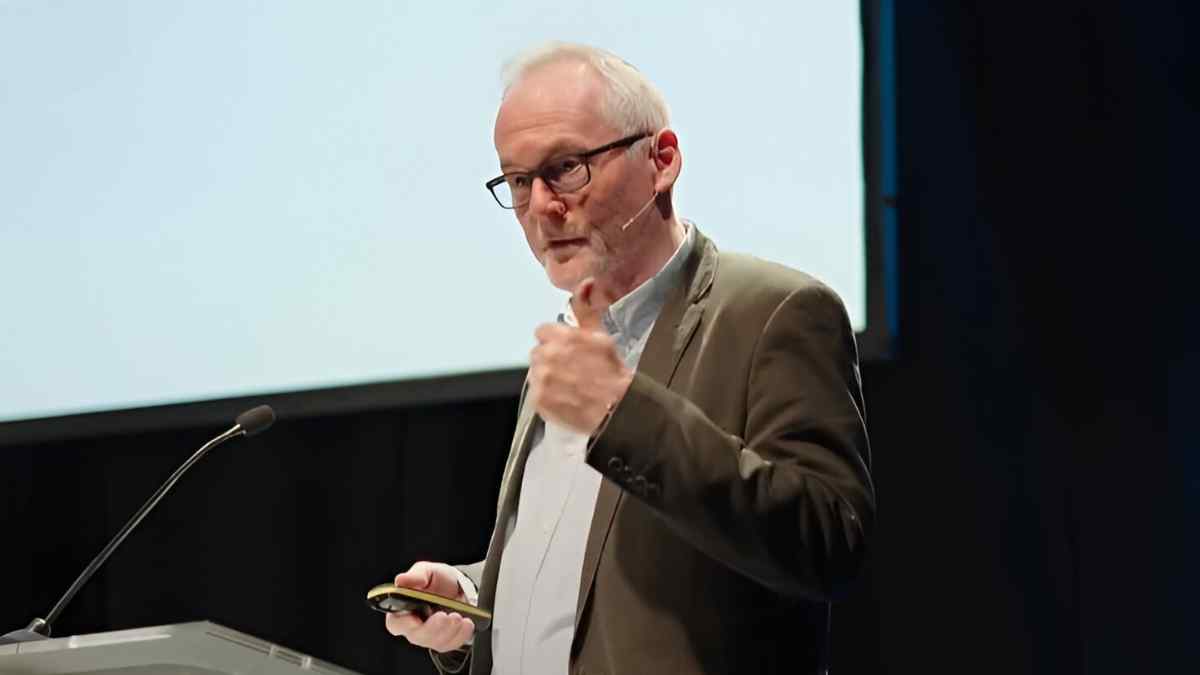Martin Sixsmith: The Master Storyteller Behind Politics, Russia and ‘Philomena’

Martin Sixsmith stands as one of Britain’s most multifaceted communicators—an author, journalist, civil servant, broadcaster, and presenter whose career spans across media, politics, and literature. Known to many as the voice and mind behind hard-hitting foreign correspondence from the Cold War to the rise of Putin, and to millions more through the emotional tale of Philomena, Sixsmith is a man of remarkable versatility. His work sheds light on historical complexity, personal trauma, and the machinery of government—all delivered with incisive wit and profound humanity.
Early Life and Education: The Formative Years
Born on 24 September 1954 in Warrington, Cheshire, Martin Sixsmith attended the Manchester Grammar School, one of the UK’s leading independent schools. His academic trajectory was intellectually rich, spanning the fields of languages and politics. He read Modern Languages at Oxford University and then pursued postgraduate studies in Russian at both Harvard and the Sorbonne. His linguistic prowess, especially in Russian, would become foundational to his later work as a journalist stationed in the Soviet Union during its most turbulent years.
Later in life, Sixsmith returned to academic study in psychology at Birkbeck College, London. This shift illustrates his continued interest in understanding the human mind—a theme central to much of his later writing.
BBC Correspondent: A Front-Row Seat to History
Martin Sixsmith spent almost two decades at the BBC, rising through the ranks to become one of its most respected foreign correspondents. From 1980 to 1997, he reported from some of the most geopolitically charged locations in the world. His assignments took him to Washington during the Clinton era, to Warsaw amid the rise of the Solidarity movement, to Brussels at the heart of the European project, and most famously, to Moscow during the fall of the Soviet Union.
His time in Russia was particularly influential. Sixsmith witnessed the final days of the USSR, the turbulent leadership of Boris Yeltsin, and the initial emergence of Vladimir Putin. This direct exposure to the inner workings of Russian politics and society deeply informed many of his later books and documentaries. Few British journalists can claim such a rich first-hand understanding of post-Soviet evolution.
Shift to Government: A Turbulent Transition
In 1997, Martin Sixsmith made a rare career pivot: he left journalism and entered government service. He worked as Director of Communications for several Labour government ministers, including Harriet Harman, Alistair Darling, and Stephen Byers. His role, involving media strategy and public messaging, placed him in the political storm of the New Labour era.
His time in Whitehall was short-lived but eventful. A well-publicised clash with Downing Street over the handling of a press release following the September 11 attacks in 2001 led to his resignation. The episode revolved around allegations that Labour spin doctors had tried to “bury bad news”—a phrase that haunted the government’s public relations for years.
Though his departure was contentious, Sixsmith’s insights into political communications would become a major theme in his fiction and non-fiction alike.
Author and Novelist: Fact, Fiction, and Everything In Between
Following his departure from government, Martin Sixsmith returned to his roots in storytelling. He began to write books—both non-fiction and fiction—that explored the intersections of power, ethics, history, and identity.
One of his early novels, Spin, tackled the world of political media manipulation. Another, I Heard Lenin Laugh, imagined a world where communism had taken a different path, blending satire with speculative fiction. His fiction, while often overlooked compared to his factual works, demonstrates a deft hand at narrative pacing and character construction.
‘Philomena’: The Story That Touched the World
Undoubtedly, Sixsmith’s most influential and widely known work is Philomena, the heartbreaking true story of an Irish woman who was forced to give up her child for adoption by the Catholic Church. The story came to Sixsmith through chance: he met Philomena Lee’s daughter at a party and was invited to explore the details of her mother’s past.
The resulting book, The Lost Child of Philomena Lee, was an emotionally resonant piece of investigative journalism. It chronicled Philomena’s lifelong search for her son, who was sent to America without her consent. The book exposed systemic abuse and secrecy in church-run institutions.
In 2013, the story was adapted into the BAFTA and Academy Award-nominated film Philomena, starring Judi Dench and Steve Coogan. Coogan played Sixsmith, portraying the journalist’s role in uncovering the truth. The film was a commercial and critical success, introducing millions to Sixsmith’s empathetic, human-centred style of storytelling.
Russia Expert: Chronicler of a Nation in Flux
Building on his BBC background, Sixsmith has continued to be a leading voice on Russian affairs. His 2010 book, Putin’s Oil, investigates how Russia uses energy as a tool of foreign policy and national power. It sheds light on how oligarchs, corruption, and strategic fuel supplies underpin Putin’s hold on the Russian state.
He followed this with Russia: A 1,000-Year Chronicle of the Wild East, a sweeping historical work that traces the development of Russian identity, culture, and governance from the tsars to modern times. The book was accompanied by a critically acclaimed BBC documentary series, offering lay readers and viewers alike a rare opportunity to understand Russia’s complex national psyche.
His work on Russia is balanced, insightful, and consistently steeped in historical knowledge rather than ideological bias. For those seeking to understand the underpinnings of modern geopolitical conflict, Sixsmith remains a trusted and authoritative guide.
Broadcasting and Documentaries: Bringing Hidden Stories to Light
Alongside his writing, Martin Sixsmith has remained an active broadcaster. His voice is instantly recognisable to regular listeners of BBC Radio, where he presents programmes on psychology, history, and social justice. His radio series often delve into lesser-known but deeply important subjects, such as Ireland’s hidden adoption industry or the trauma faced by survivors of institutional abuse.
His documentaries are marked by a humane touch and a dedication to giving voice to the marginalised. In particular, his exploration of adoption scandals in both Ireland and the UK has helped bring long-suppressed stories to public attention, reinforcing journalism’s role in social accountability.
Psychological Curiosity: The Human Mind as a Theme
Later in his life, Sixsmith became increasingly interested in psychology. This shift is not just academic but thematic, seeping into his books and programmes. His works explore human motivation, trauma, resilience, and morality—not as abstract theories but through the lived experiences of real people. Whether describing a mother’s pain in Philomena or the manipulations of power in Putin’s Oil, Sixsmith invites readers to understand the emotional undercurrents behind the facts.
Consultant and Script Advisor: Bridging Media Worlds
Martin Sixsmith’s expertise has made him a go-to consultant for political dramas and real-life adaptations. He worked with the team behind The Thick of It and In the Loop, two productions that satirised the British political machine with brutal accuracy. His insider’s perspective ensured that the shows maintained a credible tone, even when pushing the boundaries of comedy.
His input extends beyond fact-checking. He helps craft narratives that resonate with audiences, ensuring that the human and ethical dimensions of political life aren’t lost amidst the drama.
A Voice of Integrity in the Modern Media Landscape
In an era of sensationalism and polarisation, Martin Sixsmith stands out as a voice of calm, intellectual rigour, and moral clarity. His background in both government and media gives him a rare dual insight into how power is wielded and represented. He combines this with a deep empathy for individuals affected by institutional failure, creating work that is not only informative but transformative.
He does not shy away from difficult subjects—whether political manipulation, religious hypocrisy, or international corruption. Yet his approach is always thoughtful, rooted in evidence, and guided by a fundamental respect for human dignity.
Legacy and Ongoing Influence
Today, Martin Sixsmith continues to write, broadcast, and speak on issues that matter—from foreign policy to mental health, from church accountability to Russian aggression. His books are taught in schools, his documentaries spark public debate, and his journalistic standards are held up as a model for younger generations.
More than just a journalist or a former government spokesman, Sixsmith has become a cultural interpreter—a figure who helps the public make sense of the narratives shaping their world. Whether through words on a page or voices on airwaves, his contribution to British public discourse is both enduring and invaluable.
Conclusion: The Power of Story in a Chaotic World
Martin Sixsmith is not merely a chronicler of events—he is a narrator of truths, a defender of justice, and a compassionate witness to the lives that history often forgets. Through decades of work in journalism, literature, and broadcasting, he has used language to illuminate, challenge, and inspire. His stories—rooted in fact, charged with feeling—continue to bridge the gaps between past and present, power and people, truth and reconciliation.



